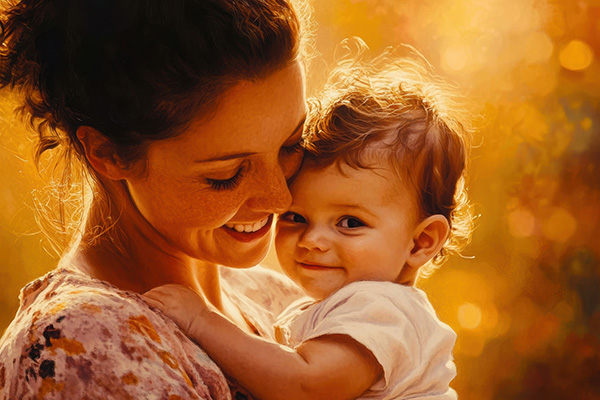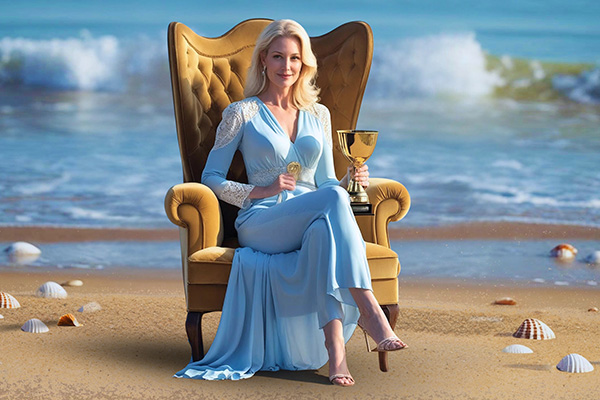emotional intelligence
The Hidden Blessing Of Dysfunctional Parents
 For those of us who grew up with dysfunctional or abusive parents, the journey of healing is not a straight path. It twists and turns through shadows of anger, grief, and longing.
For those of us who grew up with dysfunctional or abusive parents, the journey of healing is not a straight path. It twists and turns through shadows of anger, grief, and longing.
But, within this curse always lies a paradoxical hidden blessing or two. Even the most wounded parents can be our teachers and a source of inspiration, not because of what they gave us, but because of what they could not.
Yes, dysfunctional and abusive parents can be an inspiration. Not in the sentimental sense of gratitude for their suffering, but in the clear-eyed recognition that their brokenness became the rich soil in which your awareness grew.
A damaged parent can inspire you to live more consciously, to love with intention, and to stop the cycle of ancestral pain that shaped them and you.
They can inspire you to use their example as a guide for what not to do, what not to say, and who not to become.
Their absence of nurturing can ignite within you the sacred resolve to be present and compassionate. Their harshness can awaken your gentleness. Their coldness can teach you warmth. The rejection you endured can remind you daily to make every person you love feel safe, seen, and cherished!
Even if your parents were never healed, you can be. Even if they never awakened, you can awaken. Their story does not have to become your destiny. You can use their limitations as fuel to create something better, purer, and truer.
Tune Into The Guidance Of Your Emotions
 I believe our emotions are an additional ‘sense’ we use as a means of interpreting our life experiences, in the same way the normal five senses enable us to perceive and understand the world around us. Our ‘emotional sense’ help us make decisions about our preferences all the time.
I believe our emotions are an additional ‘sense’ we use as a means of interpreting our life experiences, in the same way the normal five senses enable us to perceive and understand the world around us. Our ‘emotional sense’ help us make decisions about our preferences all the time.
For example, I love chocolate. My sense of taste tells me that chocolate is for me! It’s a very clear and obvious signal from my taste buds to my brain. We receive and process stimuli all the time and our senses help us to ‘make sense’ of that input.
Your emotions are also giving you information about your preferences and if we listen and pay attention, we can gain a lot of guidance from it. Our emotions don’t just come from nowhere. They arise in direct response to stimuli or input, just like our senses do.
I have also heard emotions described as an internal guidance system, or our inner compass, which helps us decide what we want to create more of, and less of, in our life. We sometimes get confused though, because just like the other senses, we have different preferences.
For example, some people love coconut desserts, but I detest then. Not thanks, keep your coconut out of my chocolate! The thing is, I’m not confused about the fact that I don’t like coconut. I also don’t feel I have to change my preference because other people love coconut. And I also don’t force myself to eat it, just to make other people happy.
When one of our five physical senses tells us something we tend to listen, because it’s visceral. We feel it undeniably in the body. Emotions are no different!
Tarot Forecast September 2025: Queen Of Cups
 This month we are inspired by the serene and soulful energy of the Queen of Cups. Her appearance as the card of the month sets the tone for a period of emotional clarity, compassionate connection, and deepened intuition. This is not a time to push, rush, or force. Instead, it is a sacred pause that invites us inward.
This month we are inspired by the serene and soulful energy of the Queen of Cups. Her appearance as the card of the month sets the tone for a period of emotional clarity, compassionate connection, and deepened intuition. This is not a time to push, rush, or force. Instead, it is a sacred pause that invites us inward.
The Queen of Cups embodies the wisdom of the heart. She understands that true strength lies not in control, but in compassion. Her energy helps us soften where we have built walls, offering emotional nourishment both to ourselves and those around us.
This month, we are encouraged to listen deeply, not just to others, but to the whispers of our own soul. The next four weeks is about emotional intelligence, healing, and inner alignment. We are reminded that empathy is a superpower, and that our intuition is one of our greatest guides.
Traditionally the Queen of Cups is depicted sitting on a throne by the sea, symbolizing her deep emotional sensitivity and intuitive depth. The waters around her represent the subconscious mind and the realm of emotions. Her throne is adorned with images of sea creatures, signifying her connection to the watery, emotional realm and her comfort with navigating its depths.
In her hands, she holds a lidded, ornate cup, unlike any other in the Tarot. This closed cup suggests mystery, emotional containment, and sacred inner knowledge. It also symbolizes her ability to hold space, to keep confidences, and to honor emotional boundaries. She gazes intently at the cup, not distracted by the waves behind her, illustrating her capacity for focused emotional awareness and inner reflection. The Queen of Cups teaches us that strength can be serene, and that emotional attunement can lead to profound spiritual insight.
The Difference Between Emotion And Intuition
 Clients sometimes tell me during psychic readings, “I just have this gut feeling,” or “I don’t know, but something about this seems off.” I love when people say things like this. It means they are noticing the whispers of their inner guidance system. They may not yet have the confidence to fully trust it, but they’ve taken the first step to becoming more aware of whispers of their highers self, asking to be heard.
Clients sometimes tell me during psychic readings, “I just have this gut feeling,” or “I don’t know, but something about this seems off.” I love when people say things like this. It means they are noticing the whispers of their inner guidance system. They may not yet have the confidence to fully trust it, but they’ve taken the first step to becoming more aware of whispers of their highers self, asking to be heard.
The challenge comes when we try to sort out whether that “feeling” we have is an actual intuitive nudge or just an emotion bubbling up from our human experience. From a spiritual perspective, emotions and intuitions are not the same thing. Both are important, but they function very differently.
When you can tell them apart, you can make decisions with greater clarity, avoid unnecessary drama, and walk more confidently along your spiritual path.
Emotions and intuitions may seem similar because they both arise within us without a clear explanation. However, emotions are usually connected to our human reactions. They can be triggered by what’s happening around us, our personal beliefs, or our physical state. As any expert drama queen can confirm, they can sometimes be big, loud, colorful, and full of urgency!
Intuition, on the other hand, is usually quiet, calm, and strangely neutral. Even the most powerful intuitive messages can be completely free of emotion. They carry a simple clarity that doesn’t shout or demand, but simply is. In fact, these emotion-free intuitive hits are often the most accurate and meaningful, because they’re not wrapped up in temporary moods and personal biases.
What To Do When He Disappears Into His Cave
 He tells you he loves you, wants to be with you all the time, and can’t get enough of you. He calls and texts you constantly, and you feel like you’ve found the perfect relationship. You love the way he makes you feel. He must be “the one.”
He tells you he loves you, wants to be with you all the time, and can’t get enough of you. He calls and texts you constantly, and you feel like you’ve found the perfect relationship. You love the way he makes you feel. He must be “the one.”
Then, suddenly, he’s gone. No calls, no texts, no dates, nothing. Ghosted.
And you’re left wondering: What happened? Where did he go? Was it something I said, or did?
Well, no. He just retreated into his “cave.” It is where your man goes to think, breathe, and figure out what’s going on in his head.
This is the mysterious and often frustrating time-out that men often take when they realize things are moving too fast, or when they start to feel deeply attached.
For us women, especially those who are spiritually aware and emotionally intuitive, this sudden withdrawal can be very confusing and even painful.
Women tend to thrive on connection and open communication, and we naturally want to nurture and support others. So, when the man we care about suddenly becomes distant, it can trigger our deepest fears of abandonment or rejection.
But here’s what you need to understand: his retreat is not about you.
Signs Your Partner Might Be Cheating
 Is your partner cheating on you? Is your spouse having an affair? Should you believe their version of events? Is there a noticeable change in their behavior or routine? Do you sense a lack of trust or transparency in your relationship?
Is your partner cheating on you? Is your spouse having an affair? Should you believe their version of events? Is there a noticeable change in their behavior or routine? Do you sense a lack of trust or transparency in your relationship?
These types of suspicions can create a wall in relationships that is almost impossible to break down – especially if they turn out to be unfounded. When the fears are true, however, infidelity has the power to completely shatter trust and even destroy a family.
Over the years, I’ve done countless relationship readings for people from all walks of life, and one theme comes up again and again: infidelity.
In these readings, I have noticed certain patterns of behavior that consistently emerge when someone is hiding an affair. These signs aren’t just guesses or speculation-they are recurring clues that I’ve seen confirmed time and time again by the lived experience of my clients.
I don’t claim to have all the answers, but I’ve seen enough to know when something isn’t right. Whether it’s someone’s energy, their words, or the tears they shed when describing what they’ve noticed, these signs often speak louder than the lies people tell.
But knowing the truth is only part of the journey. Once you uncover it, you must be willing to act and not settle for disrespect or dishonesty.
If you’ve been feeling uncomfortable or insecure in your relationship, recognizing these signs early can help bring clarity to your situation and save you a lot of disappointment and heartache. Many of my clients who didn’t take it seriously at the time can vouch for this today.
How To Deal With Negativity And Toxic Drama
 Many people today feel overwhelmed, angry, frustrated, fearful. This is especially evident online in the social media landscape. Unfortunately, too often this leads to attacks on others, including innocent people and companies.
Many people today feel overwhelmed, angry, frustrated, fearful. This is especially evident online in the social media landscape. Unfortunately, too often this leads to attacks on others, including innocent people and companies.
It can be challenging to know how best to deal with all this toxic negativity. I believe it’s best to approach this issue spiritually, from a metaphysical or energetic standpoint.
Energy, whether positive or negative, grows when we feed it. Consider a plant: in order to thrive, it needs water, sunlight, and nutrients from the earth. If neglected, it will wither. The same principle applies to our interactions with the world around us: by paying attention to something, we feed it with our energy.
This is crucial to remember when dealing with any kind of negativity, both online and in person. To thrive energetically, we must be selective about who and what we pay attention to.
Huna, an ancient Hawaiian spiritual tradition, teaches that energy flows where attention goes. Every time we choose where to direct our energy, we’re making an active choice about what we want to grow in our lives. When we respond to negativity – whether with anger, defensiveness, or frustration – we end up reinforcing the very things we want to avoid. To maintain peace and harmony, huna advises focusing on positive intentions and constructive energy.
By giving toxic energy thieves our attention, we allow their negaivity to take root in our hearts and minds. Feeding negativity or drama only strengthens it, which ultimately affects our own well-being. When we consciously choose to withdraw our energy from negative influences and redirect it to uplifting and positive areas, we create an environment where peace and growth can flourish.